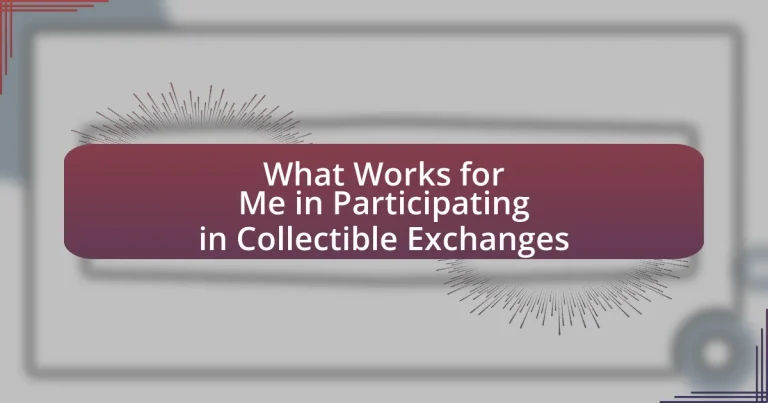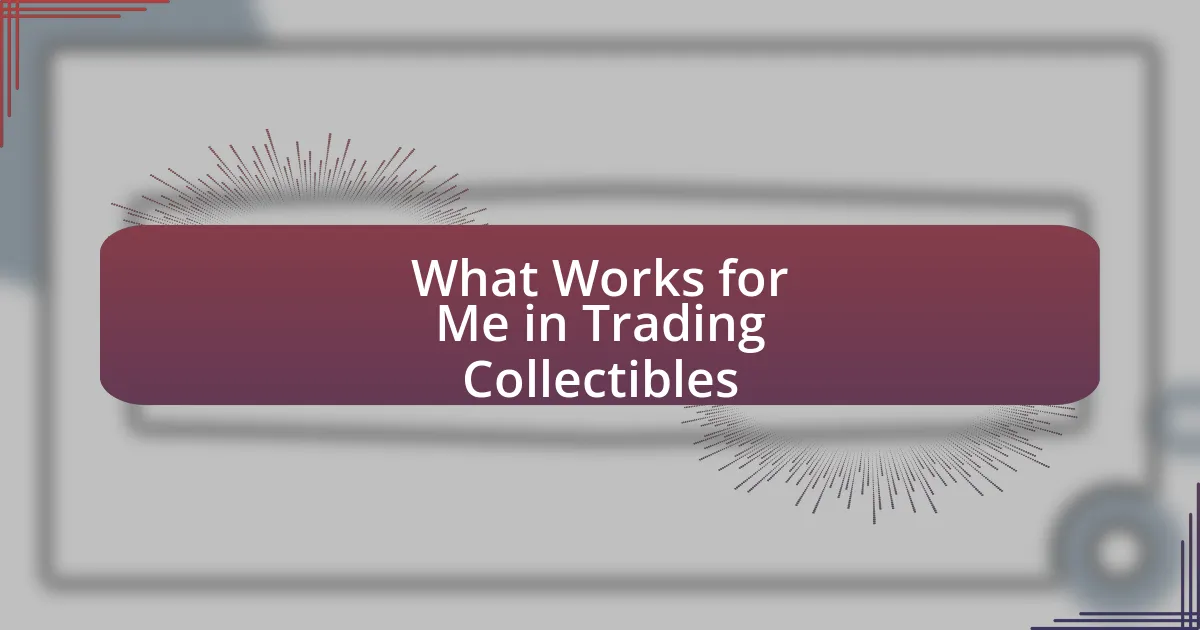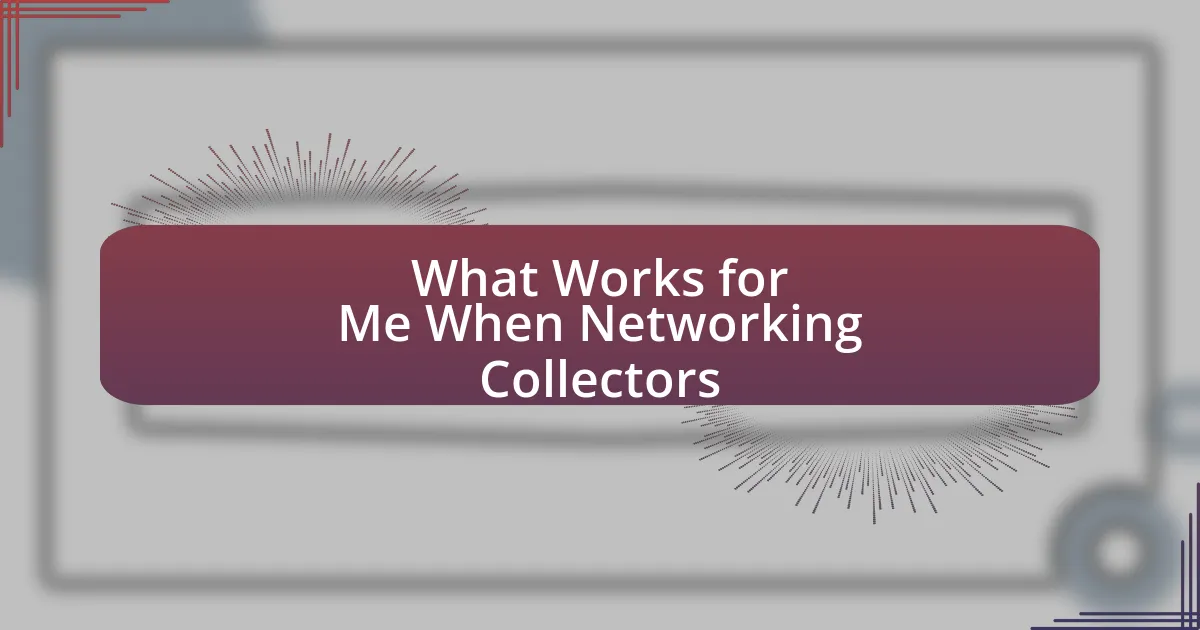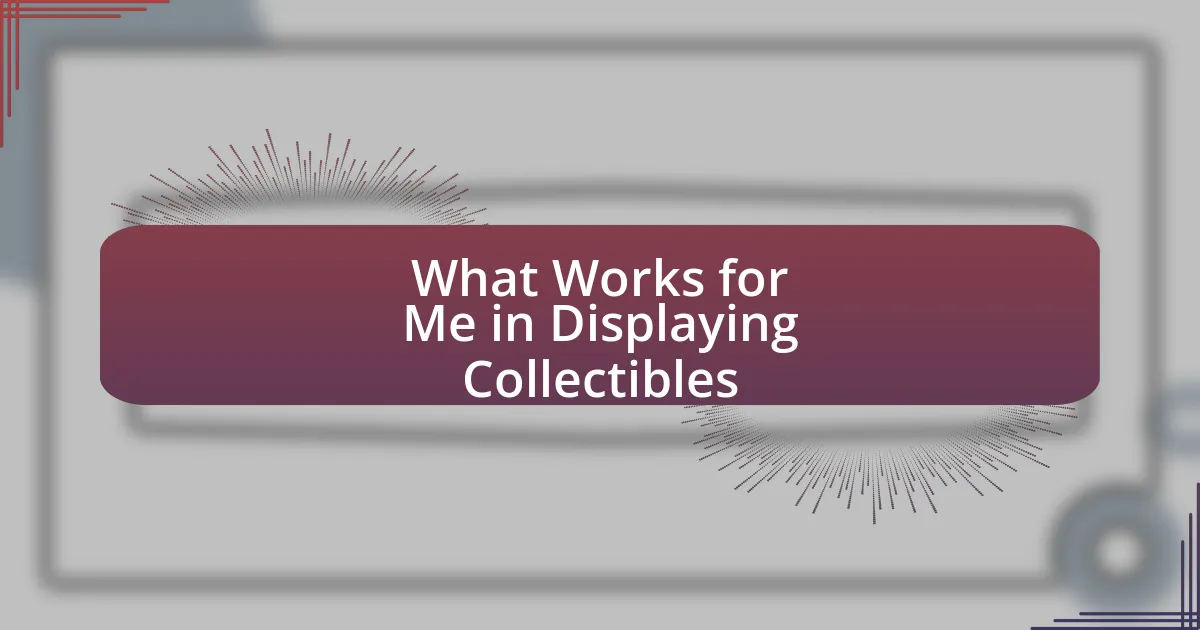Key takeaways:
- Collectible exchanges foster community connections and friendships based on shared interests.
- Successful trading relies on clear communication, flexibility in negotiations, and documenting trades.
- Building a network of collectors enriches the collecting experience and opens doors to opportunities.
- Staying informed through resources like blogs, social media, and podcasts enhances collecting strategies.
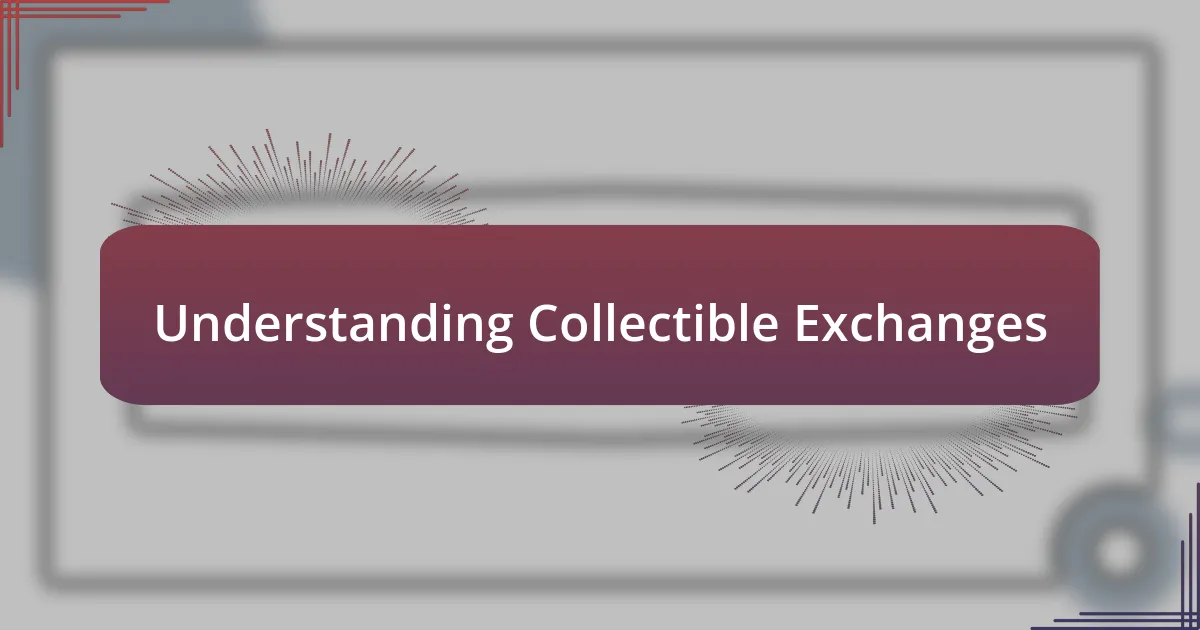
Understanding Collectible Exchanges
Collectible exchanges are fascinating marketplaces where individuals can trade items that hold personal or historical value. I remember my first swap; I felt a rush of excitement as I exchanged my rare comic book for a vintage toy. Isn’t there something special about seeing someone light up when they find that unique item they’ve been searching for?
These platforms not only connect collectors but also create a community that thrives on shared passions. Participating in exchanges has allowed me to meet incredible people and forge friendships based on mutual interests, which can often be more rewarding than the items exchanged themselves. Have you ever thought about how a simple trade can lead to lasting connections?
At their core, collectible exchanges are about appreciation and discovery. I often find myself reflecting on the stories each item carries and what they might mean to others. It’s like stepping into a treasure trove of memories, where every exchange holds the potential for a surprising story or a new relationship. How do you see the emotional value of these items impacting your own collecting journey?
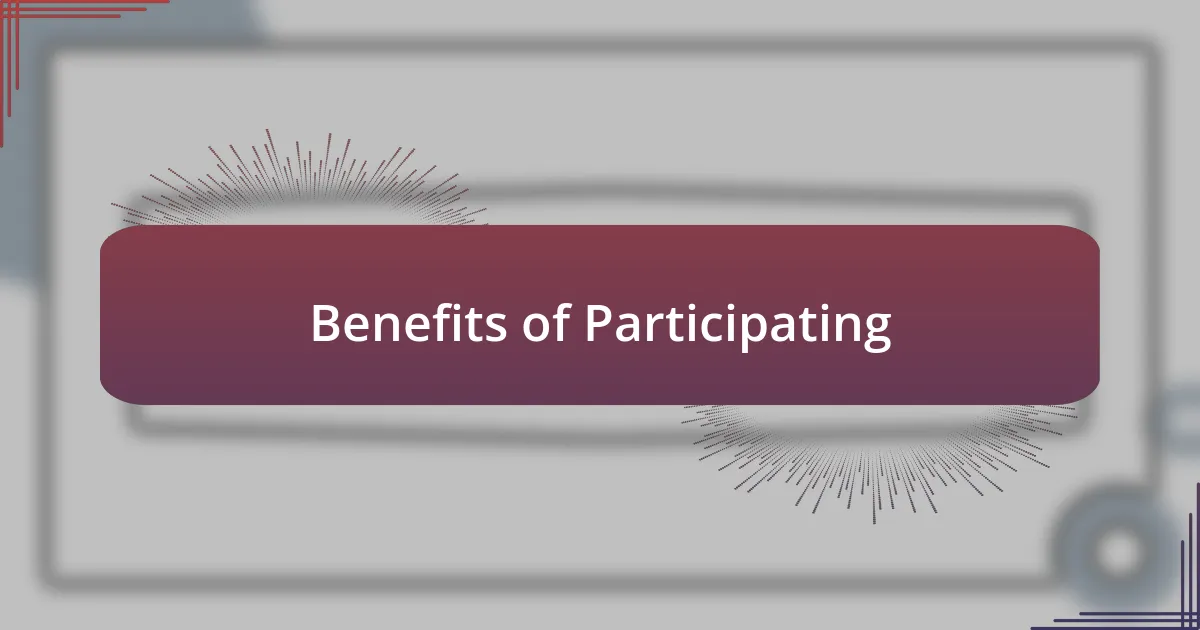
Benefits of Participating
Participating in collectible exchanges has distinct benefits that enhance both the collection process and overall enjoyment. One of the immediate perks is the opportunity to acquire items that might be hard to find elsewhere. I recall scoring a rare vinyl record through a swap I participated in; it felt like a small victory when I finally held it in my hands. The thrill of hunting for treasures together with fellow collectors adds a layer of excitement that can’t be duplicated in traditional shopping.
Additionally, engaging in these exchanges often leads to the sharing of knowledge and experiences among collectors. I frequently find myself immersed in discussions about the history and significance of specific items. A conversation I had during a recent trade about an old board game not only deepened my appreciation for it but also sparked a growing interest in similar collectibles. Isn’t it interesting how exchanging an item can lead to exchanges of ideas and stories?
Lastly, participating in collectible exchanges fosters a sense of community. I’ve met so many individuals who, like me, are passionate about their collections. Last year, I attended a local meet-up where we swapped items and shared personal journeys related to our collectibles. It’s amazing how these shared interests can turn into friendships, creating bonds that go beyond the items themselves.
| Benefit | Personal Insight |
|---|---|
| Access to Rare Items | Scored a vinyl record that I had searched for years. |
| Knowledge Sharing | Discussed the history of an old board game, sparking new interests. |
| Community Building | Attended meet-ups that turned into lasting friendships. |
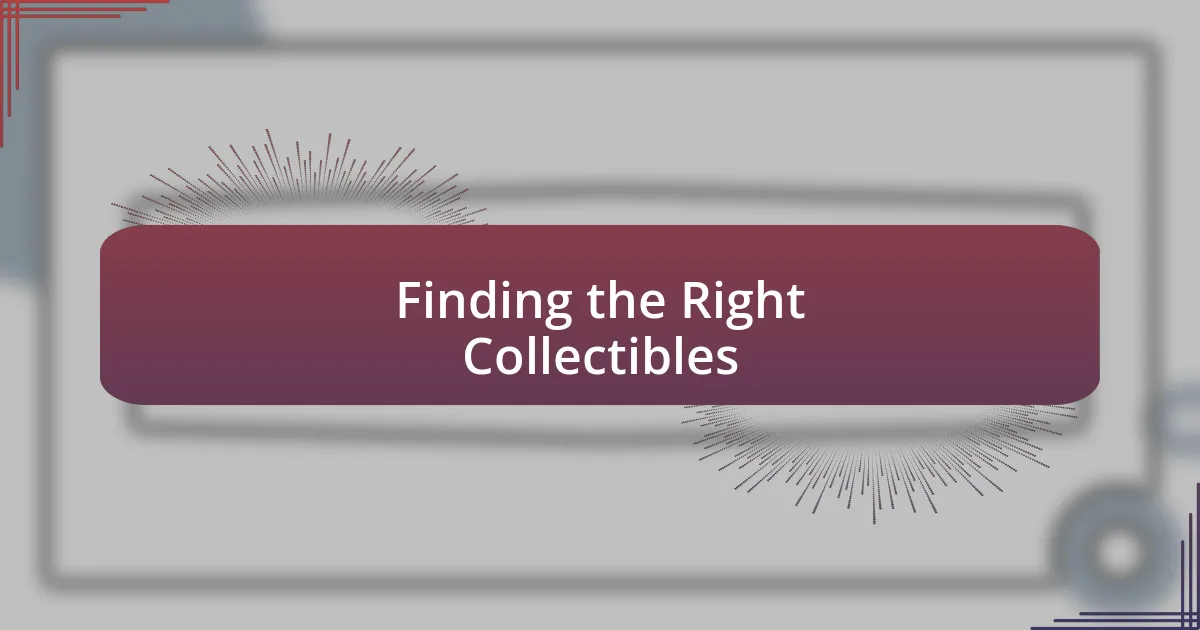
Finding the Right Collectibles
Finding the right collectibles is all about understanding what resonates personally with you. I remember when I first started building my collection; I was overwhelmed by the sheer variety of options. It took time to sift through a range of items, from vintage toys to comic books, before I found my niche in classic movie memorabilia. Focusing on what I loved made the process enjoyable and rewarding.
When searching for collectibles, consider the following factors:
- Personal Interest: Choose items that genuinely excite you and spark joy.
- Historical Significance: Look for collectibles with interesting backstories or connections to your memory.
- Market Trends: Stay informed on popular collectibles, but prioritize your passion over the latest trends.
- Condition and Authenticity: Always assess the quality of the item and ensure it’s authentic, as this can greatly impact its value.
- Community Insights: Engaging with fellow collectors can reveal hidden gems and valuable advice on what to pursue.
Ultimately, my journey in finding the right collectibles became a fascinating exploration of my own interests, reflecting who I am as a collector.
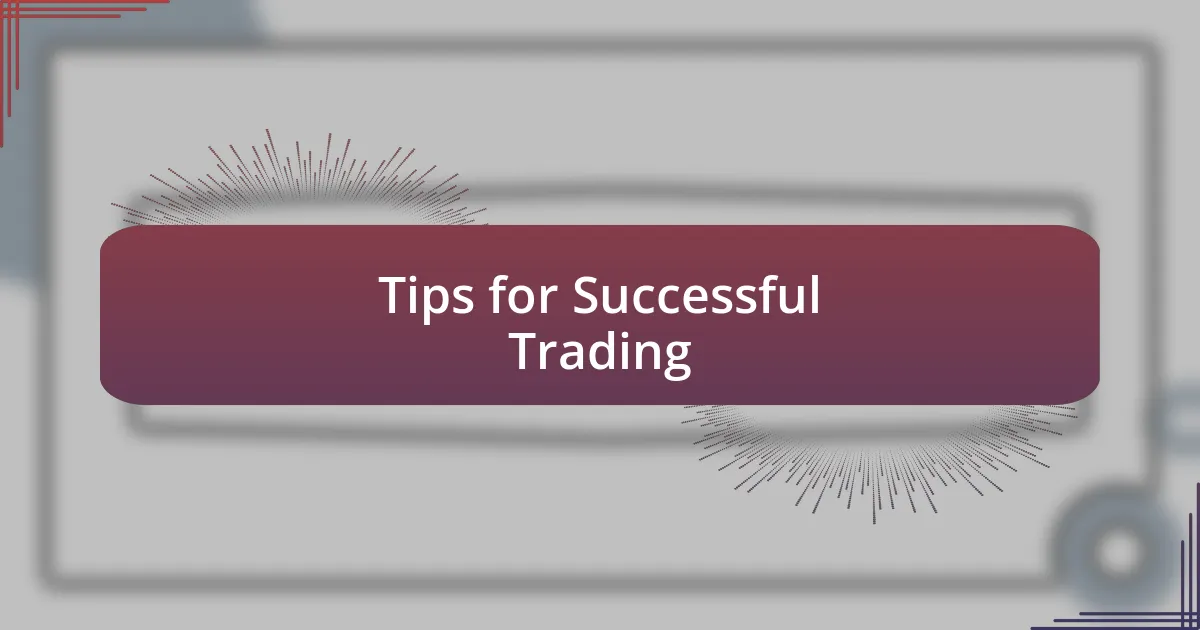
Tips for Successful Trading
When it comes to trading collectibles, communication is key. I learned this early on when I made a trade that went sour due to a lack of clarity about each other’s expectations. Have you ever found yourself in a similar situation? Being open about what you’re willing to offer and what you expect in return can make all the difference, fostering trust and ensuring a smoother transaction.
It’s also crucial to approach negotiations with flexibility. One of my favorite trades happened when I initially offered something I thought was enticing, but the other collector expressed interest in different items. Instead of sticking rigidly to my plan, I widened my scope and found a deal that delighted us both. Isn’t it rewarding when both parties leave the table feeling like they’ve won?
Lastly, it’s wise to document your trades. I began jotting down details of each transaction, including pictures and conditions of the items. This practice not only helped me keep track of my collection but also provided valuable insights when trading with others in the future. Have you ever regretted a trade because you couldn’t recall specific details? Keeping a record can save you from such frustration.
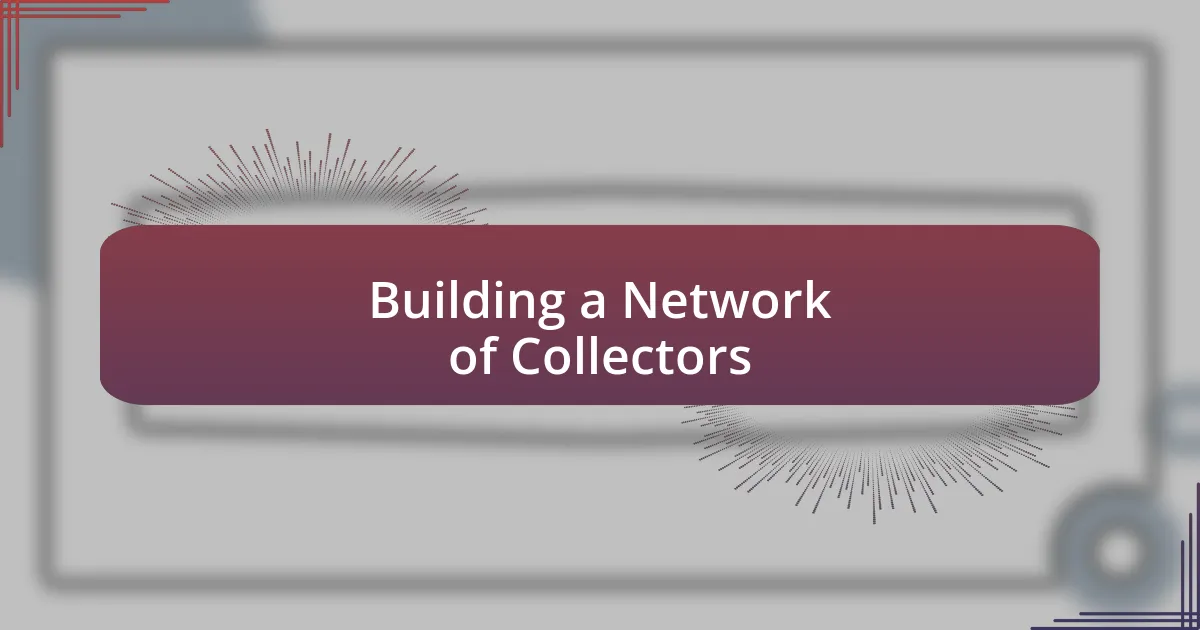
Building a Network of Collectors
Building a network of collectors has been one of the most rewarding aspects of my collectible journey. I remember attending a local trading event and striking up a conversation with a fellow enthusiast over a rare item. That casual chat turned into a fruitful connection that opened doors to future trades and collaborations. Have you ever thought about how one conversation can lead to amazing opportunities?
Connecting with other collectors often involves stepping outside your comfort zone. When I joined an online forum, I felt a bit intimidated at first, wondering if my passion would resonate with veteran collectors. But by sharing my experiences and actively participating in discussions, I quickly realized that everyone has something valuable to contribute. Building that community not only expanded my knowledge but also deepened my appreciation for the hobby. Isn’t it fascinating how shared interests can transform into friendships?
It’s vital to cultivate relationships beyond mere transactions. I recall a time when I reached out to a collector for advice on valuing a rare piece. What began as a simple inquiry evolved into a mentorship that enriched my understanding of the collectible landscape. By nurturing these connections, I’ve discovered a supportive network that continually inspires me. How might your collecting experience change if you looked at it as building a community rather than just a series of trades?

Resources for Staying Informed
Staying informed about collectible exchanges is crucial for your success in the hobby. I regularly visit websites dedicated to collectibles, like forums and blogs, where both newcomers and seasoned collectors share invaluable insights. When I stumbled upon a blog discussing market trends, I felt like I had struck gold; the information helped me not only to anticipate price shifts but also to make smarter purchasing decisions.
Social media has become a treasure trove of resources as well. I often follow hashtags related to my interests, which leads me to discover collector groups and virtual events. In one instance, I joined a Facebook group specifically focused on vintage toys, and it quickly became my go-to source for updates and discussions. Have you noticed how fast-moving and dynamic our collecting community can be online?
Don’t underestimate the power of newsletters and podcasts. Subscribing to a collector-focused newsletter turned out to be transformative for my collecting strategy. One episode of a podcast featured an expert discussing authentication methods, which altered the way I approach potential purchases. What if you woke up one day with the knowledge to avoid common pitfalls through these resources? That’s the kind of advantage you want to have at your disposal.
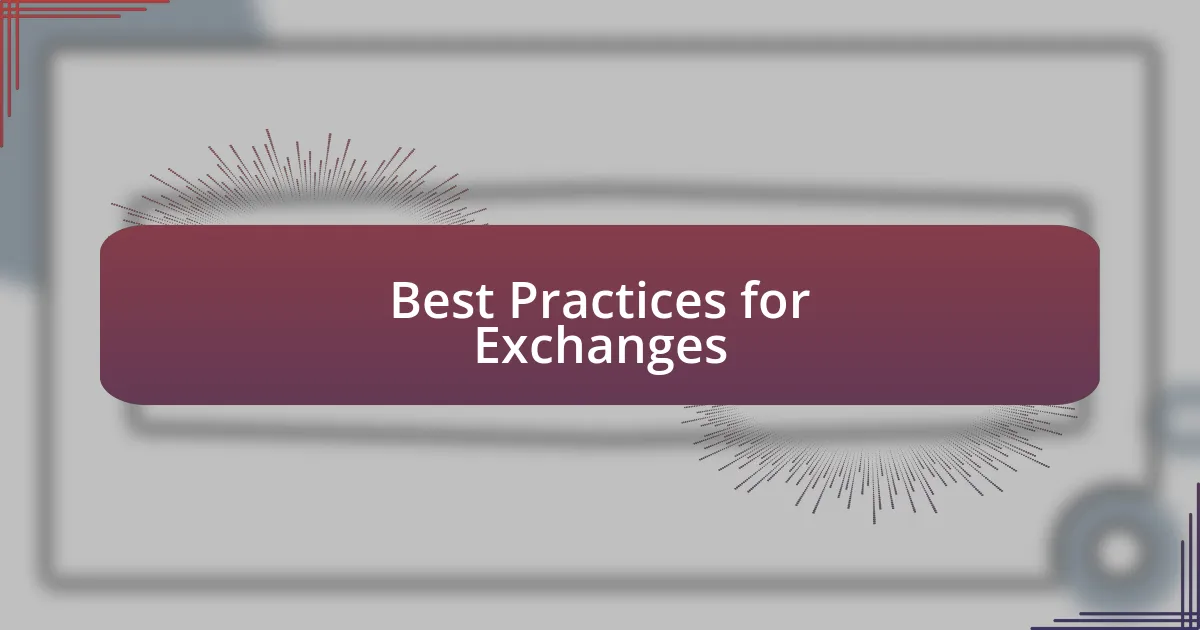
Best Practices for Exchanges
Building trust with other collectors is essential in exchanges. I remember trading a rare comic book with someone I met online. Before the exchange, we connected through messages and shared our collecting experiences. By establishing trust, I felt secure in our agreement, and it turned out to be one of my best trades.
Clear communication can make or break an exchange. When I once negotiated for a limited edition item, I laid out my expectations upfront and encouraged the other party to do the same. This transparency not only minimized misunderstandings but also fostered a sense of mutual respect. Have you ever had an exchange where poor communication led to frustration? It’s a scenario I’ve experienced, and I learned firsthand that clarity is key.
Lastly, always be open to learning from your trading partners. I had a mentor who generously shared their knowledge about the intricacies of value in collectibles. Their willingness to educate me positively influenced my collecting journey. Why not approach every exchange as an opportunity to gain insights? You never know what valuable lessons each interaction could hold.

